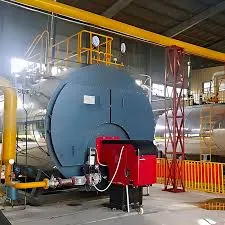
Dec . 22, 2024 02:00 Back to list
energy efficient hot water boiler
The Importance of Energy Efficient Hot Water Boilers
In today’s world, where energy conservation and environmental sustainability are at the forefront of global concerns, the role of energy-efficient hot water boilers has become increasingly significant. These systems not only help in reducing energy bills for homeowners and businesses but also contribute to the overall reduction of carbon emissions. This article explores the advantages of energy-efficient hot water boilers and how they play a crucial role in promoting sustainable practices.
Understanding Energy Efficiency in Hot Water Boilers
Energy-efficient hot water boilers are designed to minimize energy consumption while maximizing performance. Traditional boilers often operate at lower efficiency rates, resulting in wasted energy and higher utility bills. In contrast, energy-efficient models utilize advanced technology and materials to enhance heat transfer and reduce energy loss. These boilers are often rated by their Annual Fuel Utilization Efficiency (AFUE), which indicates the percentage of fuel converted into useful heat.
Most modern energy-efficient boilers boast an AFUE rating of at least 90%, meaning that 90% of the energy used is converted into hot water, with only 10% lost to the environment. This is a significant improvement compared to older models, which may have AFUE ratings as low as 56%.
Economic Benefits
Investing in an energy-efficient hot water boiler comes with several economic advantages. Although the initial purchase and installation costs may be higher compared to conventional boilers, the long-term savings on energy bills can be substantial. Home and business owners often experience a decrease in their monthly energy expenses, which can offset the initial investment over time.
In addition to reduced energy costs, energy-efficient boilers may qualify for government incentives and rebates. Many local and federal programs encourage the adoption of energy-efficient appliances by offering financial incentives, making the transition more affordable.
Environmental Impact
The environmental benefits of using energy-efficient hot water boilers cannot be overstated
. By consuming less energy, these systems play a crucial role in reducing greenhouse gas emissions associated with energy production. Fossil fuels are often the primary source of energy for heating, and their combustion releases a significant amount of carbon dioxide into the atmosphere.energy efficient hot water boiler

By choosing an energy-efficient model, users contribute to a decrease in the demand for energy, which in turn reduces the reliance on fossil fuels. This not only mitigates climate change but also lessens air pollution, leading to better health outcomes for communities.
Technological Advancements
The evolution of technology in the heating industry has catalyzed the development of highly efficient hot water boilers. Innovations such as condensing technology, smart controls, and modulating burners enhance the overall efficiency of these systems. For instance, condensing boilers capture and utilize the heat that would typically be lost in the flue gases, achieving even higher efficiency rates.
Smart controls enable users to manage their boiler operations remotely, optimizing energy use based on demand. This level of control helps prevent energy waste and ensures that hot water is only produced when necessary.
Choosing the Right Energy-Efficient Boiler
When selecting an energy-efficient hot water boiler, it is essential to consider factors such as size, fuel type, and installation requirements. Sizing is crucial; an oversized boiler can lead to inefficiencies, while an undersized unit may struggle to meet hot water demands. Consulting with a professional can help ensure the right fit for a home or business.
It's also worth considering the type of fuel used. While natural gas is a common choice for many, electric and renewable energy options are becoming increasingly popular. Solar water heaters, for example, can be a viable alternative for those looking to harness renewable energy.
Conclusion
Energy-efficient hot water boilers are a vital component in the quest for sustainable energy practices. They offer significant economic and environmental benefits, making them an attractive option for homeowners and businesses alike. As technology continues to advance, the potential for increased efficiency and reduced environmental impact will only grow. By investing in these modern heating solutions, individuals can take meaningful steps towards a more energy-efficient future.
-
High Efficiency Gas Fired Thermal Oil Boiler for Industrial Heating
NewsJul.29,2025
-
High-Efficiency Gas Fired Hot Water Boiler for Sale – Reliable & Affordable
NewsJul.29,2025
-
High Efficiency Biomass Fired Hot Water Boiler for Industrial and Commercial Use
NewsJul.29,2025
-
High-Efficiency Biomass Fired Hot Water Boiler for Industrial Use
NewsJul.28,2025
-
High Efficiency Coal Fired Hot Water Boiler for Reliable Heating
NewsJul.28,2025
-
High Efficiency Coal Fired Thermal Oil Boiler for Industrial Heating
NewsJul.26,2025
Related PRODUCTS






















